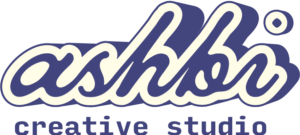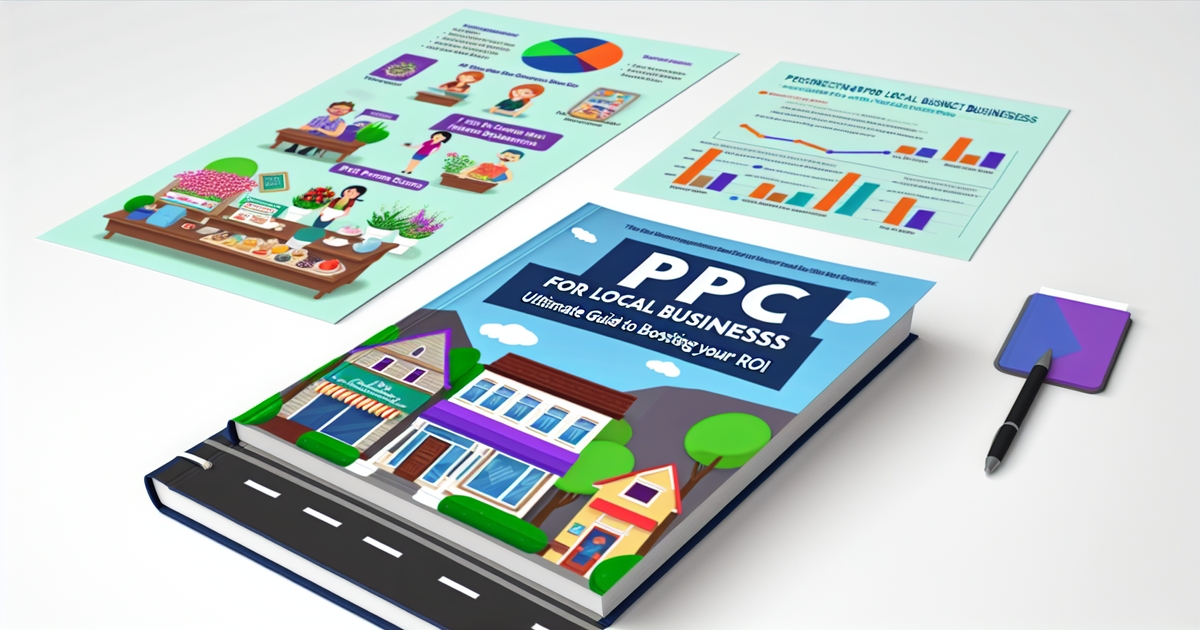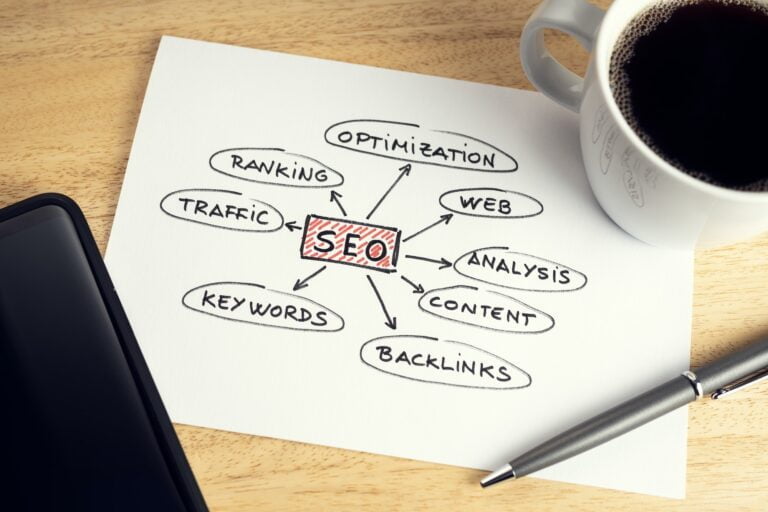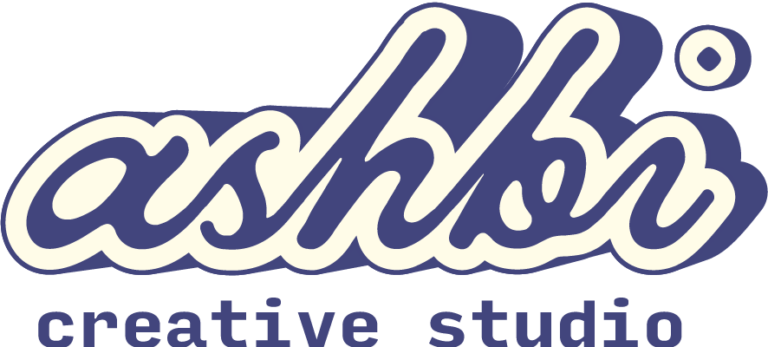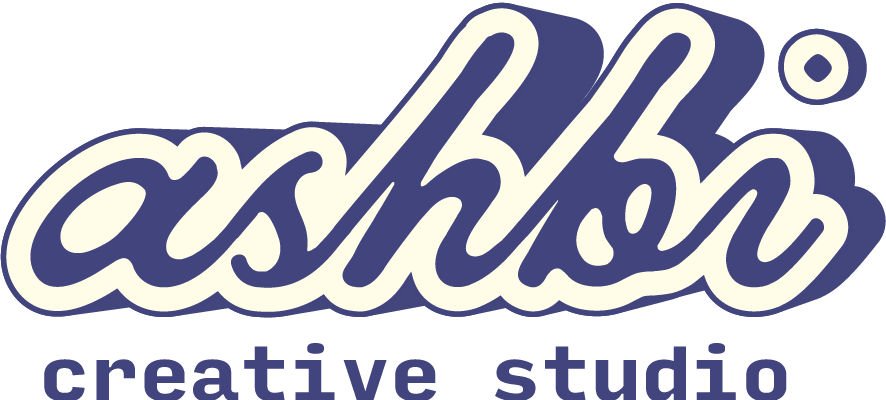Ever wonder why your local business isn’t catching as many eyes online as you’d hoped? The secret sauce might just be PPC (pay-per-click) advertising, a game-changer for small businesses aiming to dominate their local markets. In the digital age where every click could lead to a sale, mastering PPC for local businesses can set you apart from the competition. It’s not just about throwing money at ads; it’s about crafting smart, targeted campaigns that reach the heart of your community. Let’s dive into how leveraging PPC, including local search ads and Google Local Services ads, can turn those virtual passersby into real-life customers for small businesses, boosting your visibility and sales through local campaigns in ways traditional marketing only dreams of.
Key Takeaways
- PPC (Pay-Per-Click) advertising can significantly boost local business visibility online, driving targeted traffic to your website or landing page.
- Starting with PPC involves understanding your audience and setting clear, measurable goals to align with your business objectives.
- Crafting effective PPC strategies requires thorough keyword research, focusing on terms your local customers are likely to use.
- Choosing the right platforms for your PPC campaigns and setting a realistic budget are crucial steps to avoid overspending and maximize ROI.
- Successful ad creation and optimization hinge on compelling ad copy, relevant keywords, and continuous A/B testing to improve performance.
- Enhancements in PPC campaigns can be achieved through features like ad extensions, retargeting, and utilizing local service ads to stand out in your area.
- Regularly tracking analytics and performance enables businesses to make data-driven decisions, optimizing campaigns for better results over time.
- Partnering with a PPC expert or agency can provide valuable insights and free up time for you to focus on other aspects of your business.
Understanding PPC
PPC Basics
Pay-per-click (PPC) advertising is a powerful tool for businesses. It lets you show ads to your target audience directly. You only pay when someone clicks on your local search ads or Google Local Services ads on your website, making PPC cost-effective for your local business.
Setting up a PPC campaign is quick. It’s faster than organic SEO methods. Businesses can start seeing traffic in days, not months.
Local PPC Importance
Local businesses benefit greatly from PPC campaigns. They can drive immediate traffic from their area. This local business PPC campaign, including local search ads and Google Local Services ads, with compelling ad copy, brings potential customers right to their doorstep or website.
PPC increases visibility in specific regions. For local shops or service providers, this is crucial. It puts them right where customers are looking.
Businesses with physical locations need local PPC the most. It connects them with community members searching for their services through Google, helping with local business PPC campaigns on their website.
PPC vs SEO
PPC and SEO serve different purposes but both are vital for online success. PPC offers quick results while SEO builds over time. SEO attracts organic traffic to a website without direct costs, unlike paid ads through PPC on Google search, benefiting local business.
With PPC, you control your budget tightly. You decide how much to spend per click or per day on your local business PPC campaign, including ad groups and ad extensions in Google Local Services ads. SEO needs continuous effort and content creation but doesn’t hit your wallet directly each time someone visits your site.
Getting Started with PPC
Setting Objectives
Before launching a PPC campaign for your local business, it’s crucial to set clear goals. These objectives might be generating more leads or increasing sales. They should always align with your broader business aims. Without specific targets, measuring the success of your local business PPC campaign on Google search and local services ads becomes challenging.
To ensure you’re on the right track, establish benchmarks early on. For example, if lead generation is your goal, decide how many leads you aim to acquire monthly through PPC. This approach keeps efforts focused on Google search, local business PPC, and local services ads, and makes evaluating performance straightforward.
Target Audience Identification
Understanding who your customers are forms the backbone of any successful PPC strategy. Start by pinpointing demographics such as age range, location specifics, and interests that define your ideal customer profile. Remember, knowing what bothers them or what they desire, especially regarding Google Local Services ads and local business PPC, can significantly enhance how you communicate with them.
Once you’ve identified these aspects, tailor your Google local services ads and local business PPC messaging to solve their problems or meet their needs directly. If most of your audience is looking for fast service in a local area and values trustworthiness above all else—highlight those points in your ads.
Conducting Keyword Research
Keyword research is where much of the groundwork happens in a PPC campaign for local businesses. Utilize tools like Google Keyword Planner to find terms closely related to what potential customers are searching for online, including local business PPC and local services ads.
- Focus particularly on long-tail keywords since they tend to have less competition but higher conversion rates.
- Investigate which keywords competitors are targeting successfully.
This dual approach ensures not only reaching users actively seeking products or services like yours through Google local business PPC but also adapting strategies based on market dynamics.
Crafting PPC Strategies
Effective Strategies
To make PPC for local businesses work, it’s crucial to constantly test and optimize. A/B testing is a powerful tool here. By creating different versions of ad copy and landing pages, you can see which ones perform best. This method helps in refining your local business PPC approach based on real data from Google Local Services ads.
Ad scheduling plays a vital role too. It allows you to show your ads at times when potential customers are most likely online. For example, if you run a local restaurant, targeting dinner time on Google might be the best strategy.
Leveraging seasonal trends can also boost your campaigns significantly. Imagine promoting special holiday offers or summer discounts when people are actively looking for deals. This timely approach ensures that your local services ads promotions resonate with what’s currently relevant to your audience.
Clear Calls to Action
Calls to action (CTAs) are critical in guiding users towards taking the desired step with local services ads. Using action-oriented language like “Buy Now” or “Learn More” makes it clear what action users should take next. The key is making these CTAs stand out and ensuring they’re easy to find on both ads and landing pages.
Furthermore, aligning CTAs with campaign objectives is essential for consistency across the user journey, including local services ads. If the goal is increasing newsletter sign-ups, the CTA should directly reflect this by encouraging users to subscribe rather than directing them elsewhere.
Competitive Edge Tactics
Gaining an edge over competitors requires highlighting what makes your business unique through unique selling propositions (USPs) in your ads. This could be anything from superior product quality, exceptional service, or exclusive offers not available elsewhere.
Keeping an eye on competitor ad strategies is another way to stay ahead of the game; adjust yours accordingly if you notice new trends or tactics being used effectively by others.
Offering exclusive deals or promotions via PPC ads can attract more clicks as well; everyone loves feeling like they’re getting something special that’s not available broadly.
Platform Choices and Budgeting
Google Ads Insights
Google Ads is a powerful tool for local businesses diving into PPC. It offers detailed analytics to monitor ad performance. These insights are crucial. They tell you what’s working and what isn’t.
By analyzing this data, businesses can tweak their campaigns for better results. This process involves refining keywords, ad copy, and targeting settings based on the performance metrics provided by Google Ads.
Moreover, staying updated with new features in Google Ads can further optimize your campaigns. Tools like responsive search ads adjust your ad content to match more closely with potential customers’ search queries. This optimization leads to higher engagement rates from viewers who find your ads more relevant to their needs.
Budget Optimization
Allocating your budget wisely is key in PPC for local businesses. Start by distributing funds according to each campaign’s performance and objectives.
Bid adjustments are a strategic way to use your budget efficiently. For instance, increasing bids on high-performing keywords can boost visibility and ROI.
Regularly reviewing campaign results helps refine spending strategies over time. If certain ads aren’t delivering as expected, reallocating budget towards more successful ones ensures every dollar contributes towards achieving business goals.
Platform Comparison
Choosing the right platform is essential for maximizing PPC success.
- Google Ads usually comes first because of its vast reach.
- Bing Ads, however, shouldn’t be overlooked; it often has lower CPC rates which might offer better value in some cases.
When comparing platforms:
- Consider where your target audience spends most of their time online.
- Evaluate the demographic profiles active on each platform.
- Assess cost-per-click (CPC) rates across platforms to identify where you’ll get the most bang for your buck.
For example, if targeting older demographics that may frequent Bing more than younger audiences do on Google, investing in Bing could yield better results at a lower cost per click rate than competing heavily in the crowded space of Google Ads.
Ad Creation and Optimization
Compelling Ad Copy
Creating ad copy that grabs attention is crucial for PPC success. Short, benefit-focused headlines work best. They should highlight what makes your local business unique. Include keywords in your ad text to ensure relevance.
Experiment with different ad variations. Testing helps identify which messages resonate most with your audience. Some ads might perform better because of a specific call-to-action or wording choice.
Ad Relevance and Targeting
Ads must match the search queries they appear for. This improves your ads’ relevance scores significantly. Higher scores mean lower costs per click and better ad positions.
Demographic targeting allows you to reach people more likely to be interested in your services based on age, gender, or other factors. Tailoring ads based on user search intent can also increase conversions.
Geographically-Focused Groups
For local businesses, focusing on specific areas is key.
- Create separate ad groups for different local regions or neighborhoods.
- Customize messages to reflect local culture or preferences.
- Adjust bids according to how well locations perform.
This approach ensures that your advertising budget is spent more effectively by targeting potential customers where they are located.
Enhancements in PPC Campaigns
Location Extensions
Adding location extensions to your local business PPC campaign can significantly boost its effectiveness. These extensions display your business address and phone number directly within the ads. This makes it easier for potential customers to find you, especially when they’re on the go.
Location extensions are not just about showing an address; they actively drive foot traffic. Imagine a person searching for “coffee shops near me.” If your coffee shop appears with an address and phone number, that searcher might decide to drop by. Moreover, these extensions enhance your local search presence by providing detailed business information right in the search results.
Geographic Targeting
Geographic targeting is another powerful tool in refining your local business PPC strategy. You can narrow down audiences by city, region, or even a specific radius around a location. This ensures that only potential customers in relevant areas see your ads.
But geographic targeting isn’t just about honing in; it’s also useful for exclusion. For instance, if you run a service-based business that only operates within certain neighborhoods, excluding locations outside of those areas helps avoid wasting ad spend on irrelevant clicks. Analyzing which locations generate high engagement rates allows you to optimize campaigns further and allocate budget more effectively.
Optimizing Landing Pages
The landing page is where prospects land after clicking on one of your ads – making it crucial for converting interest into action. To maximize conversions from your search campaign, ensure the content of each landing page matches the promise made in its corresponding ad and uses similar keywords.
Optimizing page load speed is also vital as slow-loading pages frustrate users and may lead them to leave before taking any desired action such as making a purchase or filling out a contact form. A smooth user experience keeps visitors engaged longer. Clear calls-to-action (CTAs) guide users towards completing an action like signing up for newsletters or contacting sales teams directly from the landing page itself without needing additional navigation steps which could potentially lose their interest along way due misdirection confusion over what step should be taken next achieve goal initially attracted them click through begin with!
Analytics and Performance Tracking
Measuring Results
To fully grasp the impact of PPC for local businesses, it’s crucial to track key performance indicators (KPIs). These include click-through rate (CTR), conversion rate, and cost per acquisition (CPA). By monitoring these metrics, businesses can gauge the effectiveness of their campaigns.
Using conversion tracking is another vital step. It helps measure the return on investment (ROI) accurately. With this data in hand, businesses can tweak their strategies based on solid analytics rather than guesswork.
Adjusting strategies becomes simpler with clear insights from performance metrics analysis. This means if a campaign isn’t performing well, quick changes can be made to improve results.
Analyzing PPC Analytics
Diving deep into analytics reveals much about user behavior and campaign success. It shows what’s working and what’s not. This insight is invaluable for making informed decisions moving forward.
Identifying trends or patterns through detailed analysis helps fine-tune future campaigns. For instance, if users from a certain area are clicking more often but not converting, perhaps localized messaging needs tweaking.
Data segmentation offers a closer look at specific aspects of your campaigns. It allows you to analyze data based on demographics or behaviors giving you more targeted insights for adjustments.
Real-Time Performance Tracking
Real-time tracking gives instant insights into how campaigns perform moment by moment. This enables businesses to react swiftly to any sudden drops or spikes in performance.
Quick reactions are essential in the fast-paced world of PPC advertising. If something isn’t working as expected, immediate adjustments prevent wasted spend and optimize for better outcomes. Automation tools play a big role here by allowing real-time bid adjustments based on current campaign performances without manual intervention every time.
Advanced PPC Techniques
Remarketing Approach
Remarketing is a powerful strategy for local businesses looking to boost their PPC efforts. It targets users who have visited your website but didn’t make a purchase or take action. By tailoring ads based on the user’s past behavior, you can significantly increase conversion rates.
For instance, if someone browsed your local bakery’s website without buying anything, you could show them an ad highlighting a discount on their favorite pastry. This keeps your business top of mind and encourages them to revisit and convert.
Leveraging Social Media Ads
Social media platforms offer unique opportunities for expanding your reach beyond traditional search engines. You can target users based on specific interests, behaviors, and demographics exclusive to each platform. This precision allows local businesses to connect with their ideal audience more effectively.
Integrating social ads into your overall PPC strategy ensures comprehensive coverage across multiple channels. For example, if you run a local gym, targeting fitness enthusiasts on Instagram with special membership offers can drive significant traffic and conversions.
Google Local Services Ads
Google’s Local Services ads are specifically designed for high-intent local queries. They’re ideal for service-based businesses like plumbers or electricians looking to capture leads in their area. Unlike standard PPC campaigns where you pay per click, here you only pay when someone contacts your business directly through the ad.
This model not only maximizes ROI but also builds trust among potential customers through Google’s verification badge displayed alongside your ad.
Partnering for Success
Professional Assistance
Hiring PPC professionals or consultants can be a game-changer for local businesses. These experts bring a wealth of knowledge and industry experience to the table, which is crucial for managing successful campaigns. They know the ins and outs of PPC, from keyword selection to bid management.
By leveraging their expertise, businesses save valuable time. This allows them to focus on other aspects of their operations while ensuring their PPC campaigns are in capable hands. Moreover, professional assistance often leads to increased campaign efficiency. Experts use proven strategies and best practices that they’ve honed over years.
Agency Partnership Benefits
Partnering with an agency offers several advantages for small businesses looking to enhance their PPC efforts.
- Specialized Expertise: Agencies have teams dedicated solely to PPC management. They stay up-to-date with the latest trends and algorithm changes, ensuring your campaigns remain competitive.
- Advanced Tools: Many agencies invest in sophisticated software that provides deeper insights into campaign performance than standard platforms might offer.
Agencies also bring scalability to the table. As your business grows, so do your marketing needs. An agency can easily adjust its services to accommodate this growth without sacrificing quality or attention.
Another significant benefit is gaining an outside perspective on your marketing strategy. Sometimes being too close to a project can create blind spots regarding potential improvements or innovative approaches. An agency’s fresh eyes can identify opportunities you might have missed and suggest new tactics that could better resonate with your customers.
Summary
Diving into PPC for your local business can feel like navigating a maze blindfolded, but it doesn’t have to. From understanding the basics, crafting killer strategies, to tracking your success, we’ve walked you through each step of the journey. Think of PPC as your digital megaphone, amplifying your business’s voice in a crowded marketplace. It’s not just about throwing money at ads; it’s about smart spending, creative thinking, and constantly tweaking your approach based on real data.
Now’s the time to take the plunge. Whether you’re fine-tuning your current campaigns or starting from scratch, remember that every click has the potential to unlock new growth for your business. Don’t let the fear of the unknown hold you back. Dive in, experiment, and watch your local business thrive. Ready to make some noise with PPC? Let’s get cracking!
Frequently Asked Questions
What is PPC and why should local businesses care?
PPC, or Pay-Per-Click, is like a shortcut to the top of search results. For local businesses, it’s gold because you only pay when someone clicks your ad. It’s fast exposure without breaking the bank.
How do I start with PPC for my local business?
Starting with PPC is as simple as setting up an account on platforms like Google Ads or Bing Ads. Think of it as planting your digital flag where potential customers are already looking.
Can I manage my own PPC campaigns or should I hire help?
You can definitely start managing your own campaigns to dip your toes in. But if you’re aiming for Olympic-level performance, partnering with a pro can make all the difference.
How much does it cost to run a PPC campaign?
The beauty of PPC? You call the shots on budgeting. Whether you’ve got a wallet full of cash or just some loose change, there’s room for everyone in the world of online ads.
What makes a good PPC ad stand out?
A great ad speaks directly to what folks are searching for – think of it like answering their questions before they even ask them. Plus, adding that special sauce that makes your business unique really helps catch their eye!
Why is tracking analytics important in PPC campaigns?
Analytics let you peek behind the curtain to see what’s working (and what’s not). It’s like having x-ray vision for your campaign’s health – super useful for making adjustments on the fly!
